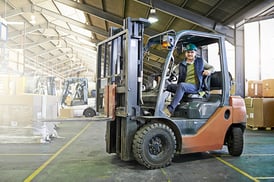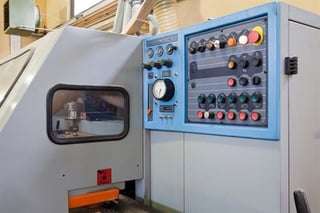
When appraisers look at variables in an equipment valuation, two of the key factors taken into account are useful life and depreciation. Though the process may seem straightforward, machinery & equipment appraisers look at different characteristics that assist in determining useful life and depreciation within the current market. This differs from the prescribed approach a certified accountant takes.
Accounting Methodology of Determining Depreciation and Useful life
When it comes to capitalized machinery & equipment on a company’s books, accountants treat depreciation and useful life according to accepted principles. One such principle is the Modified Accelerated Cost Recovery System (MACRS). This method is based around a uniform, straight line reduction in value, or depreciation, which starts with the acquisition price of the equipment and amortizes that price, or initial value, equally over a standardized term, usually five to seven years. The endpoint of the depreciation is typically zero.
An Appraiser’s Market Driven Methodology of Determining Depreciation and Useful Life
When appraisers value machinery & equipment, they research the market to find as much information as reasonably possible to estimate its current value. Depreciation and useful life are two components of this analysis, and can be determined through relevant third party sources that buy, sell and utilize the type of assets being appraised. This is a direct market derived approach to understanding these variables more in tune with the reality of how they are valued over time and how long they can reasonably be expected to operate effectively before needing major rebuilds/overhauls or retire from service entirely.
It is important to understand these factors and take them into account as part of a complete market analysis which will also include reviewing comparable sales of the equipment being appraised. Market comparable data can oftentimes be limited or inconsistent across different sources and a balanced understanding of market depreciation and useful life can complement this data and provide reasonableness checks to the comparable sales.
Developing Market Depreciation Curves for Asset Classes of Machinery & Equipment
Once an appraiser has completed a number of valuations in specific markets and industries, they can consider creating a database of values which results in the development of market driven depreciation curves that will further serve as a reasonable source of historical data to consider on future valuations. This would be similar to the concept of subscription databases that are publicly available in certain markets such as construction, automotive and over the road transportation in today’s resource networks.
In summary, when your business needs an updated true market assessment of value for their capital assets, always look to an accredited equipment appraiser to complete the assignment.


